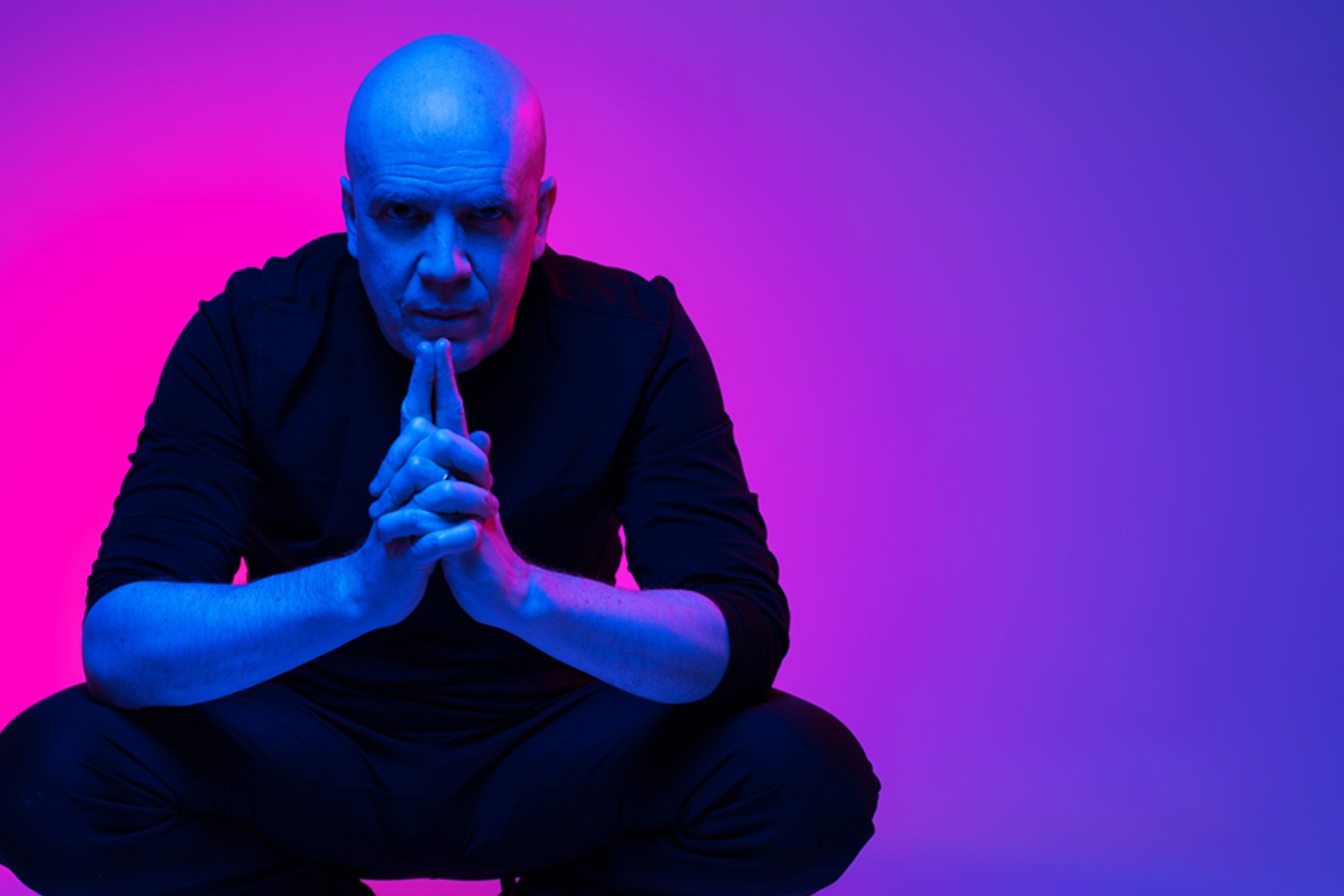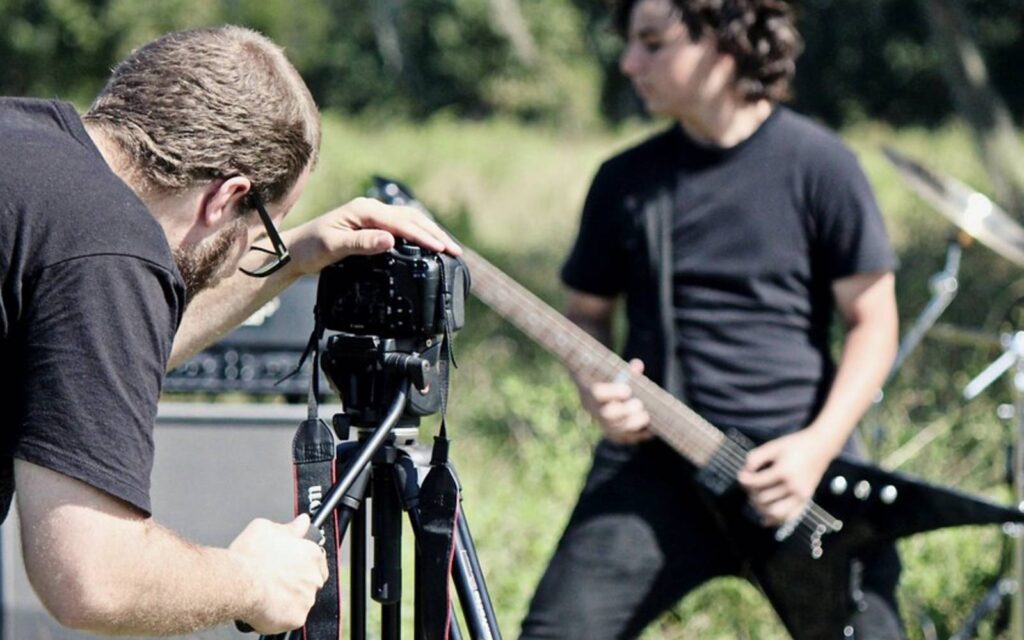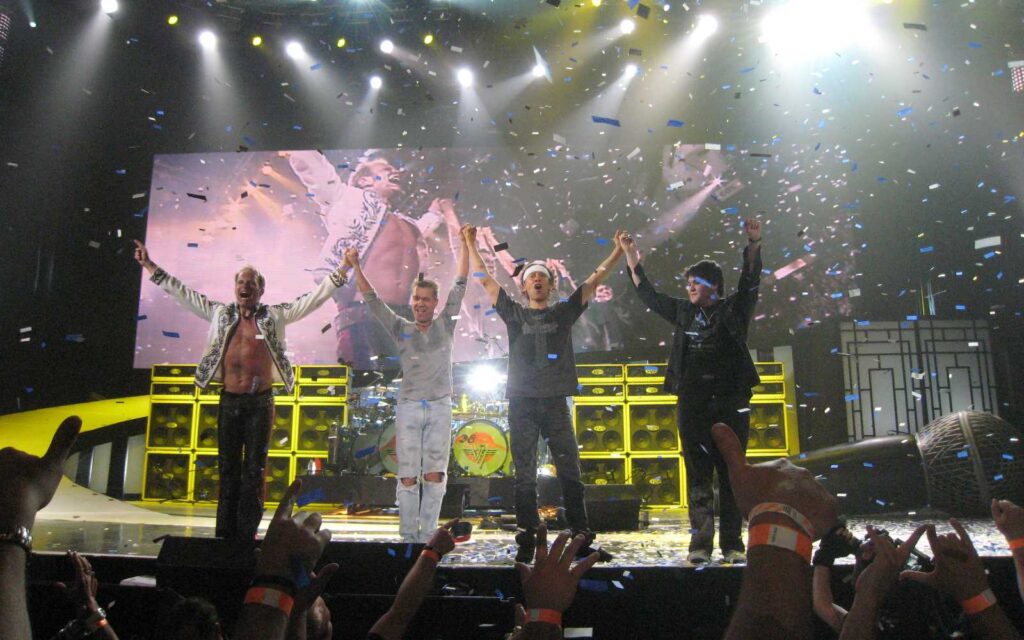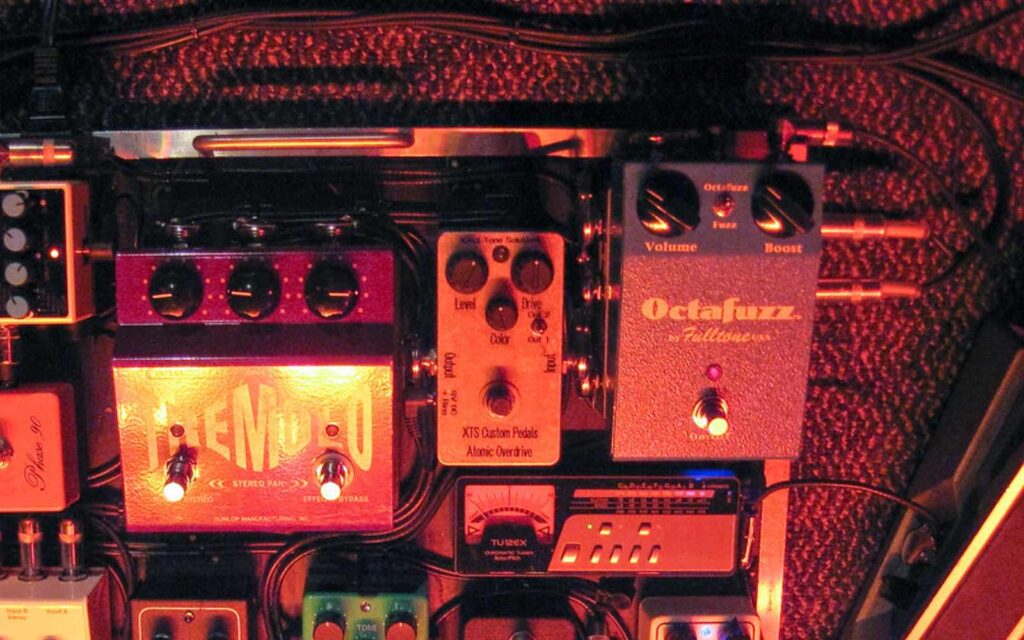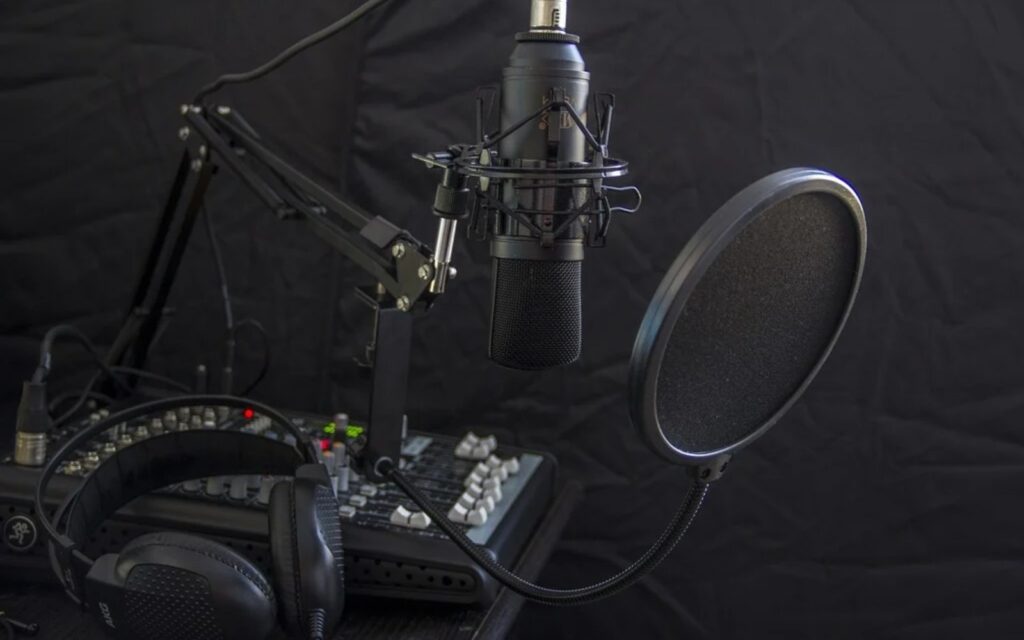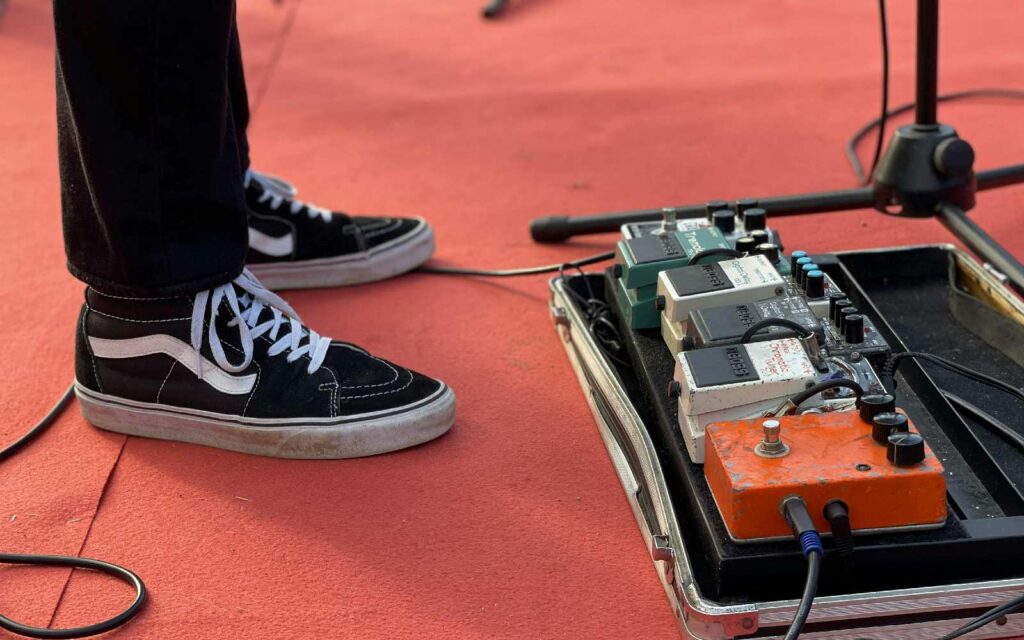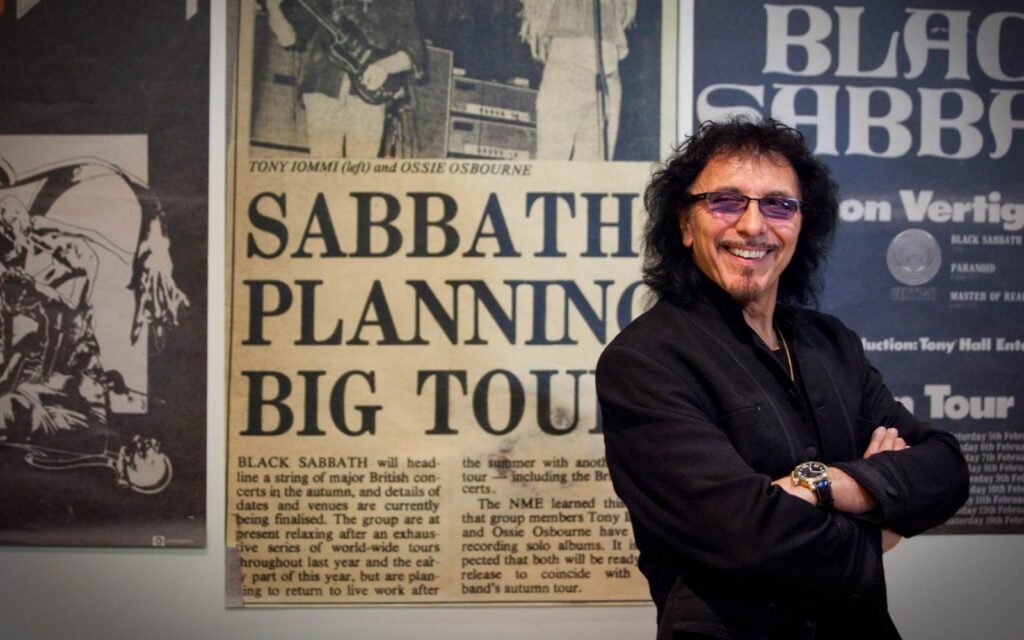As someone with such a vast catalogue as both musician, metal frontman and conductor of sorts, Devin explains his work ethic simply. “I like drinking coffee.” he laughs.
Devin Townsend is a man of many hats. He’s touring Australia this week, playing songs from his entire catalogue of music, while also in support of his most recent album Lightwork.
He’s spent decades as a session guitar player, while also having huge success in Strapping Young Lad throughout the 90s and 00s, before he pivoted to solo work in the form of the Devin Townsend Project, Devin Townsend Band and a growing list further solo albums under his own name. By his own estimation “I’m think I’m nearing 30 [albums] now”.
As someone with such a vast catalogue as both musician, metal frontman and conductor of sorts, Devin explains his work ethic simply. “I like drinking coffee.” he laughs.
Read all the latest features, columns and more here.
Devin Townsend
“That’s as far as I can think about myself, man. I think that the identity, as in what I do, has been so transient over the years. [It’s] based on the nature of the process, and the process that I refer to is that of using music and creativity as a counterpart to articulate any degrees of personal development.”
“I think defining myself as anything has been problematic in the past because when I realise that a lot of my need to do that has been searching for identity, more so than anything else. Now I believe that my identity is much more rooted in…”
Devin trails off here, saying he doesn’t even really know.
“[The] music is a counterpart to that, but it’s certainly not defined by any of these things. It sounds like I’m trying to toot my own horn and it’s not the case, it’s just that… I’m just a human.”
I drill a bit into why I’ve opened with this broad question, explaining that people in bands often define themselves as musicians, but Devin has transcended this. There’s a visual element to his live shows, he’s a songwriter, a guitar player and a producer, and I let him know that it’s cool for someone of his calibre to still just be in it to express himself.
“That’s all it is, and I don’t think I know what I’m doing, which makes it all the more humorous on some level. I’m fortunate to have been in the company of incredible musicians, just staggering musicians, theoretically staggering musicians. And I don’t know what they’re doing, that’s not what I do.”
“Music became, and the act of making music that extends into things like visuals or lyrics or artistic statements on any level, became a convenient avenue for me to articulate parts of my personality that, as a highly sensitive yet stunted person, I didn’t have the vocabulary for.”
Devin is profoundly humble. Clearly aware of the massive body of work he’s built up, and the influence he’s had, but he’s also just making music for the art of it.
“Music is a socially acceptable way to be open. And that allowed me an opportunity to express something that, in absence of, I don’t know where I would’ve been.”
Devin shifts a bit here, explaining that he spent years focused on the work because of insecurities, being wrapped up trying to make more and more music, so much so that he began to question why he was doing it at all. He ultimately realised that without intent, it’s too much work. He laughs looking back at his past self trying to create without a clear reason to express himself.
“Identifying your intent moment to moment is also problematic, because you change. Everything changes.”
“So where I’m at currently is: it’s a tangible expression of gratitude. My ability to do music is me being able to say ‘Okay, I don’t understand anything, but it’s fucking awesome!’ That’s how I rationalise the work now.”
Based on this chat about how he’s grown as an artist and human being, acknowledging his past shortfalls that’ve led him ultimately to here, I’m curious: what’s it like playing music from his entire catalogue with this newfound clarity?
Strapping Young Lad
“It’s great. I love Strapping [Young Lad].” he begins. “Because my intent back then was not to be full of shit. Whether or not I was is another…” he says with a smile.
“But that was my truth at that point. So I think a big part of personal development for me has been having compassion for the person that I was. I think so much of my earlier work was fuelled by this sense of inadequacy. As I got older and I’m able to reflect on where I had been as an entity, I don’t feel like ‘Oh, you’re an idiot’, ‘cause that was the dialogue for years.”
“Somewhere along the line, I’m like ‘I see why you were like that.’ I see where the trauma was, I see how that manifested.”
Devin is at a point now where he can acknowledge the past, understanding he was doing the best he could in the earlier days of Strapping Young Lad.
We pivot here, initially as an equipment-focused question but it’s definitely become broader with Devin’s responses. Is he playing the older music exactly as it was recorded or is it re-appropriated with his new lense of understanding?
“Well, I’ve tried both. I’ve tried interpreting them in new ways, but what I’ve recognised as a result of trying that… I recognise by trying to deconstruct it that it all hinges on the nuance. So that china hit there is important because of how it supports that line there. It’s all like a house of cards.”
“The idea of honouring your past is: ‘No, do it the way you meant to do it.’”
Knowing that he’s trying to play the songs as closely to the original as possible, I ask about his rig for switching between tones from 90s metal to 2022’s Lightwork.
The Lightwork touring rig
“Well, [the earlier tones] were a lot more shitty.” he laughs. “You can yell into the void until you’re breathless with your opinion on analogue vs. digital, y’know all these things. I think the thing that’s so important to remember is it’s all perspective. It’s all personal preference.”
“For me, digital works fantastically because I created those sounds in the past with a clear intent, and that intent has been internalised since that time. So when it comes to recreating it, I know what the recipe is.”
“So while it may not be precisely that, it’s aesthetic is 95% of the way there. And in order to represent the vibe that this music is putting across, that’s 75% more than I need.”
I press him for details: is the touring rig reasonably comprehensive to cover all these bases or is it just one digital box with all the patches?
“Well, it’s a box and a backup.” he laughs. “But I do so much work prior to a tour to get all my patches and transition clean, replicate the sounds and everything. But I don’t think people come to my shows for tones.”
“It pays if your shows don’t sound awful, but if people were going to see Stevie Ray Vaughn or Jimi Hendrix, they’d expect to see Fender with Stevie Ray Vaughn and Marshalls with Hendrix. If they’re plugging into a Fractal, you’d probably be disappointed because so much of the aesthetic of that music was based on the romance of it. That’s almost negligible in what I do. What I do is I’m trying to establish an emotional environment, and to replicate that, the sounds are like ‘Dude, just gimme the sounds.’”
“I don’t need a lot of the things that a purist would need, not because I don’t think it’s cool, I love that stuff. But it’s not what I need.”
We shift here to discuss the visual element of Devin’s live shows, the sonics being handled by his own playing and a robust digital rig, albeit with a backup. Budgets have shrunk since the pandemic, Devin instead choosing to allocate his funds to players and the sound.
“It’s one or the other for me. It’s either we have palm trees and 75-foot visuals or it’s something minimal that just looks good, and the focus can be on the performance. And that’s what I choose to do.”
On the subject of these players, Devin explains he has a ‘rolodex of the greatest players in existence today’, of which he’s very grateful, but a lot of the greats are very specialised.
“For live, I need people who can do all of it. Now, with this tour, with Australia and these past few months at least, I’ve found a heap of players who can do it all, and they just keep getting better at it. That has opened up a lot of doors for me, so I don’t think about things from the past being out of reach, because so-and-so isn’t nuanced enough, or they’re not fast enough or musical enough, whatever, right?”
Devin Townsend band
Devin explains that in past tours he’s had to be more specific about choosing the setlist based on who he was playing with, but not with this Australian tour. Devin found himself shocked at how good the music felt when the tour began, finding himself able to more accurately nail the aesthetic of different eras of his sound with a backing band who shift and morph through different styles.
“What we’re doing over the past six months or so, and what we’re doing now in Australia, I personally feel that it’s potentially the best it’s ever been. That’s always been the goal since the beginning.”
Devin Townsend is touring Australia in November, tickets via The Phoenix. The tour begins in Perth at the Metro Fremantle on Wednesday, November 8, followed by three shows supported by Caligula’s Horse on Friday, November 10 at The Forum, Melbourne, Saturday, November 11 at The Metro, Sydney and Sunday, November 12 in Brisbane at The Tivoli.
